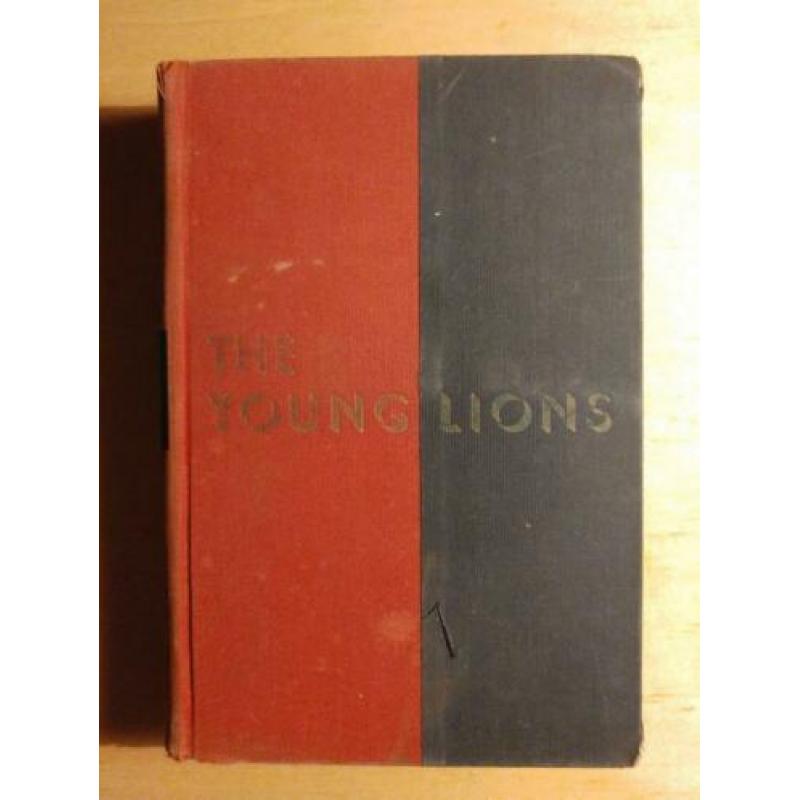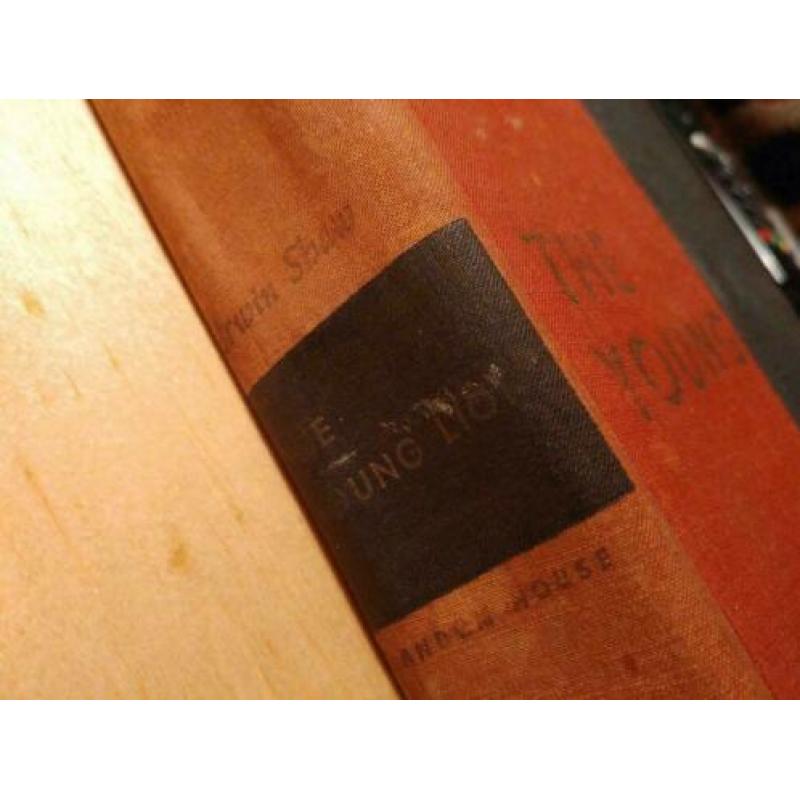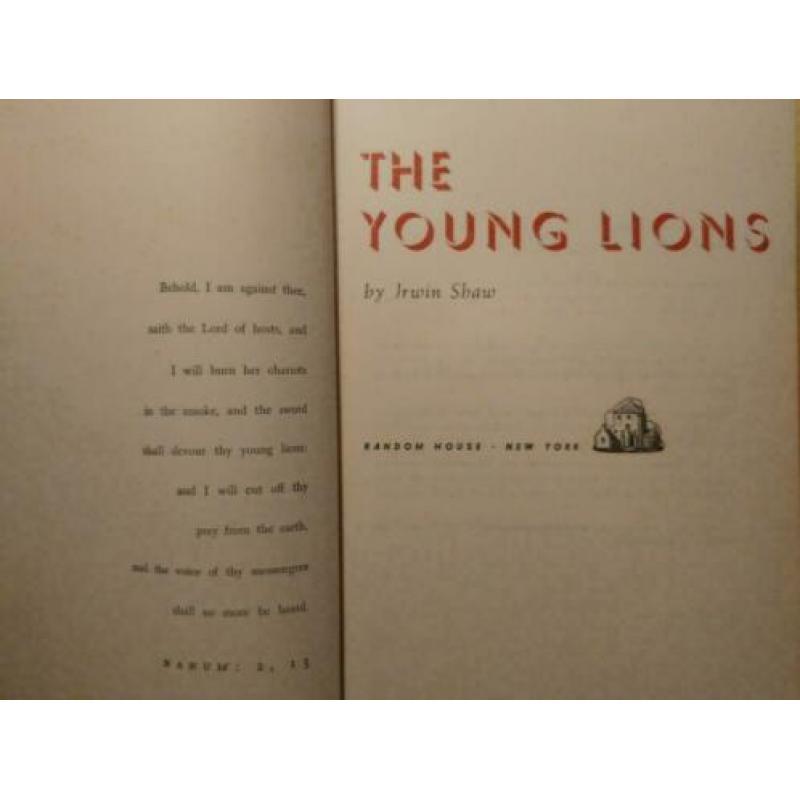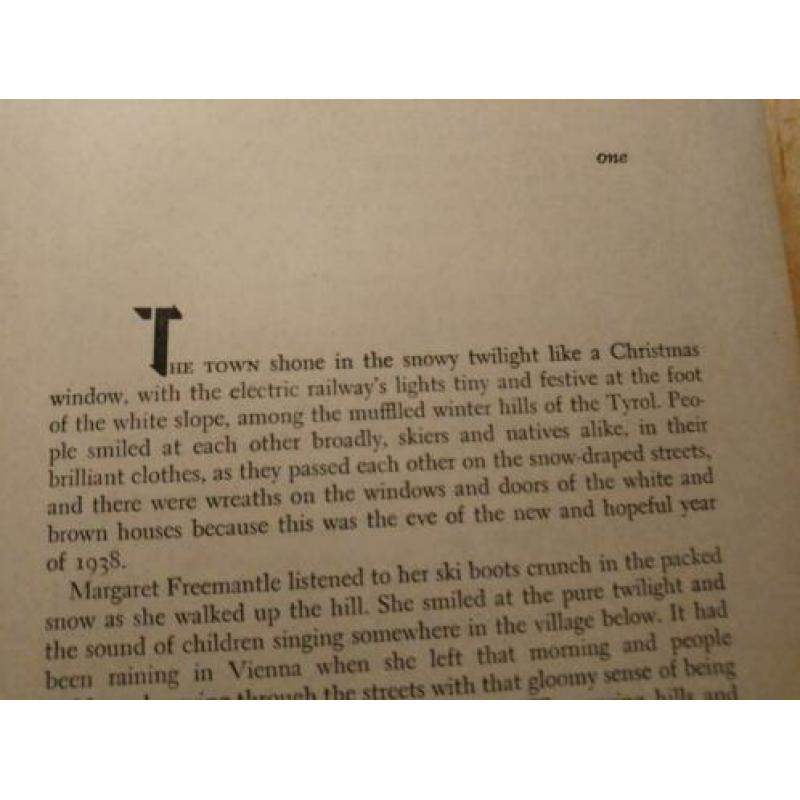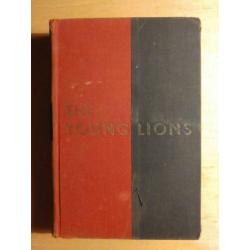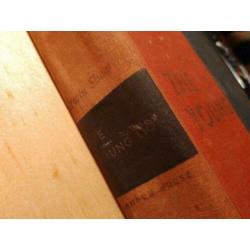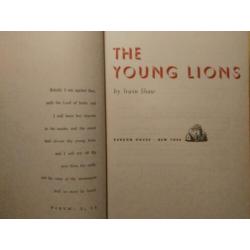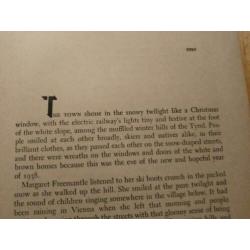ID: 52997
Omschrijving
Irwin Shaw
The Young Lions
Random House, New York
First printing, 1948
The Young Lions (1948) is a novel by Irwin Shaw about three soldiers in World War II. Christian Diestl is at first a sympathetic Austrian drawn to nazism by despair for his future but willing to sacrifice jews if necessary; Noah Ackerman is an American jew facing discrimination of the American kind; and Michael Whitacre is an American wasp who struggles with his lack of meaning arising from his lack of struggles.
The three have very different wars: Diestl becomes less sympathetic as he willingly sacrifices more and more merely to survive; Ackerman finally overcomes the discrimination of his fellows in the army only to be nearly undone by the horror of the camps; Whitacre, still without meaning in his life, survives them both.
Orville Prescott of the New York Times wrote a very positive contemporary review, calling it \"The best war novel yet written by an American ... Mr. Shaw is a natural writer. He is an acute observer of men at war. His ear for dialogue is excellent. He gives his major characters an immediate reality that is utterly persuasive. \"Prescott\'s only criticisms were that the novel was \"much longer than it needs to be\" with a few too many minor characters that \"slow down his story\" and that he found the women characters to be \"generally unbelievable.\"
Kirkus reviews also praised the novel in 1948, saying \"If not directed at a popular level, this is the outstanding novel to have come out of the war, in the universality of its framework, its thoughtfulness, and its writing which is swift, believable and often brilliant\". Jonathan Yardley, writing in 2009 in the Washington Post, identified The Young Lions as one of the four epic American war novels that emerged in the immediate post-war era. The other three were The Naked and the Dead by Norman Mailer (1948), The Caine Mutiny by Herman Wouk (1951) and From Here to Eternity by James Jones (1951).
The Young Lions
Random House, New York
First printing, 1948
The Young Lions (1948) is a novel by Irwin Shaw about three soldiers in World War II. Christian Diestl is at first a sympathetic Austrian drawn to nazism by despair for his future but willing to sacrifice jews if necessary; Noah Ackerman is an American jew facing discrimination of the American kind; and Michael Whitacre is an American wasp who struggles with his lack of meaning arising from his lack of struggles.
The three have very different wars: Diestl becomes less sympathetic as he willingly sacrifices more and more merely to survive; Ackerman finally overcomes the discrimination of his fellows in the army only to be nearly undone by the horror of the camps; Whitacre, still without meaning in his life, survives them both.
Orville Prescott of the New York Times wrote a very positive contemporary review, calling it \"The best war novel yet written by an American ... Mr. Shaw is a natural writer. He is an acute observer of men at war. His ear for dialogue is excellent. He gives his major characters an immediate reality that is utterly persuasive. \"Prescott\'s only criticisms were that the novel was \"much longer than it needs to be\" with a few too many minor characters that \"slow down his story\" and that he found the women characters to be \"generally unbelievable.\"
Kirkus reviews also praised the novel in 1948, saying \"If not directed at a popular level, this is the outstanding novel to have come out of the war, in the universality of its framework, its thoughtfulness, and its writing which is swift, believable and often brilliant\". Jonathan Yardley, writing in 2009 in the Washington Post, identified The Young Lions as one of the four epic American war novels that emerged in the immediate post-war era. The other three were The Naked and the Dead by Norman Mailer (1948), The Caine Mutiny by Herman Wouk (1951) and From Here to Eternity by James Jones (1951).
